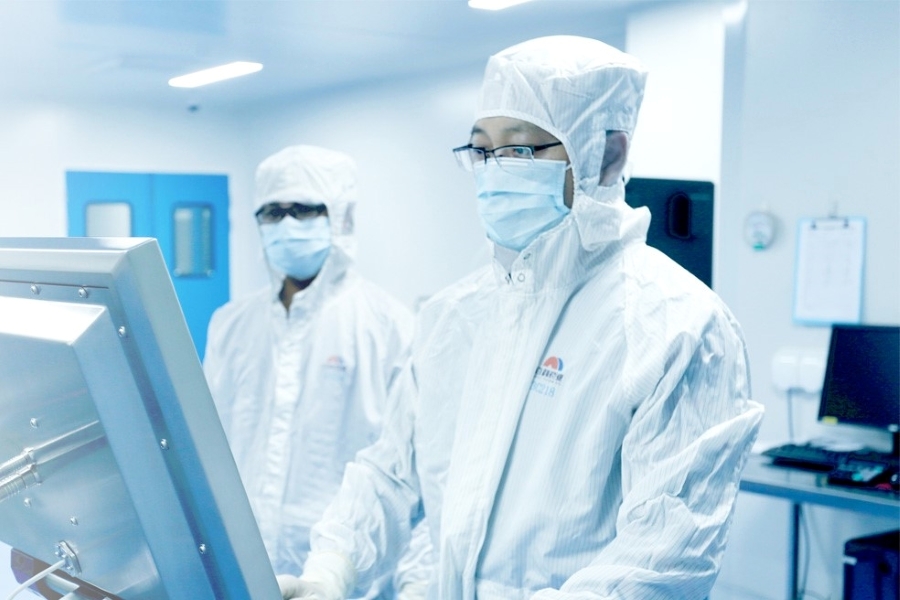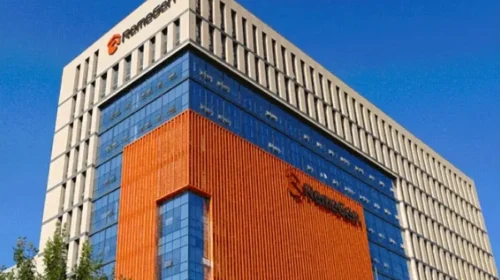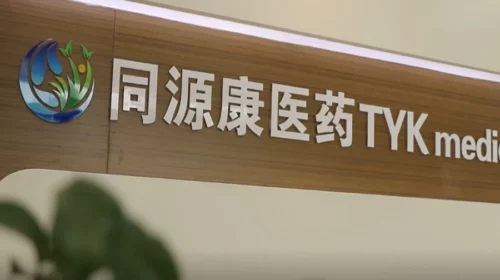Sichuan Biokin chases Hong Kong listing after BSM drug deal

The biopharma company has yet to market any products but one of its antibody-drug conjugates is being jointly developed in a lucrative collaboration with Bristol Myers Squibb
Key Takeaways:
- Sichuan Biokin has been using proceeds from generic drug sales to develop novel oncology drugs, but government procurement policies in China have slowed its revenue stream while R&D spending is on the rise
- The company has put six ADCs into around 60 clinical trials of which nine are at the Phase Three stage
By Molly Wen
Sichuan Biokin Pharmaceutical Co. Ltd. (688506.SZ) is dipping into multiple funding pools to keep the cash flowing for its work on next-generation cancer therapies.
The developer of antibody-drug conjugates (ADCs), likened to “biological missiles” against cancer, has been a stellar performer on Shanghai’s Nasdaq-like STAR Market since it went public there in early 2023. Just over a year later the company is aiming to secure a capital top-up through a secondary listing in Hong Kong.
Sichuan Biokin started out in1996 as a producer of complex generic drugs and traditional Chinese medicines. But in 2010 it pivoted towards the innovative drug business, using its revenue from established products to fund research into specialized cancer therapies. The work has yet to yield a commercial product but last year the company enlisted a powerful multinational partner to develop one of its drug candidates for the treatment of solid tumors.
Bristol Myers Squibb (BMY.US) agreed with Sichuan Biokin’s wholly owned subsidiary SystImmune last December to jointly develop the bispecific drug BL-B01D1 in the United States, delivering a vote of confidence in the Chinese company’s R&D ability. Under the agreement, Sichuan Biokin kept control of the drug within China while BSM gained the independent right to develop and launch the product in other overseas markets.
The conjugate directs a highly targeted dose of chemotherapy at specific receptors involved in the growth and spread of cancer cells. The receptors in this case, EGFR and HER3, are implicated in various tumors originating in layers of the skin. The drug could go on to have broad market use as a precisely calibrated weapon against cancer, having been entered into more than 20 clinical trials, with seven advancing to Phase Three as standalone treatments for conditions such as breast cancer and non-small cell carcinoma.
BSM paid $800 million upfront for rights to the drug and agreed to disburse further near-term contingent sums of up to $500 million. The Sichuan Biokin subsidiary stands to gain up to an additional $7.1 billion in milestone and other payments, adding up to as much as $8.4 billion for the overall deal. This would make it the most valuable tie-up for a single product in the global ADC sector to date.
By the end of 2023, the company’s cash and cash equivalents had shrunk to just 392 million yuan ($53.9 million), 609 million yuan less than a year earlier. But in March this year the BSM downpayment of $800 million provided a big liquidity boost, taking the firm’s cash balance to 5.87 billion yuan at the end of May.
However, spending has accelerated as the company steps up the pace of research and testing. The bill for R&D rose from 280 million yuan in 2021 to 380 million yuan a year later and 750 million yuan in 2023. In the first four months of this year, R&D spending climbed 56% to 330 million yuan.
Slowing revenue stream
Meanwhile, the money coming in from generic drug sales, the company’s main source of revenue, has been falling. In the three years from 2021 to 2023, annual sales slipped from 790 million yuan to 700 million yuan and 560 million yuan. This left the company with annual losses of 107 million yuan, 282 million yuan and 780 million yuan, blamed on price pressure from bulk government purchases for China’s drugs procurement program. As a result, gross margin has slipped from 73.2% in 2021 to 54.8% in 2023.
Balancing the equation of rising R&D and falling revenue from existing products has clearly been a challenge. When financing for the pharmaceutical industry started to dry up, the company set its sights on the IPO market. In January 2023, a flotation on the STAR Market at an issue price of 24.7 yuan per share raised 990 million yuan. The share price rose more than 160% in the first month after the IPO and hit a record high of 215.7 yuan in mid-June this year, pushing the firm’s market cap beyond 70 billion yuan. Although the stock price has dipped lately, the company still ranks second in market value among innovative drug firms listed on the STAR Market.
Sichuan Biokin doubled down on its IPO strategy on July 10 when it filed for a Hong Kong listing, saying the funds would be spent on boosting research and manufacturing capability outside of mainland China. According to the preliminary prospectus, six ADC drug pipelines including BL-B01D1 have reached clinical trial stages, amounting to 60 trials in total. Moreover, the company has developed a platform for multi-specific antibody drugs and four pipelines for GNC multi-specific antibody drugs.
ADCs have been one of hottest areas of cancer research since 2020, with many multinationals eager to get in on the act. The conjugates combine the targeting ability of monoclonal antibody drugs with the cancer-killing properties of cytotoxic compounds. Scientific studies have described the treatments as “biological missiles”, attracting investor interest in developers such as Sichuan Biokin, with its several ADC pipelines.
With the STAR Market listing, Sichuan Biokin’s price-to-earnings (P/E) ratio stands at about 14.7 times, much higher than the 5.9 times for HBM Holdings (2142.HK), an industry peer that has yet to launch a commercial drug but makes a profit from its licensing business.
However, Sichuan Biokin faces downside risks from its heavy reliance on one-off licensing revenue. The high-profile BSM partnership promises to keep revenues rolling in, but investors should pay close attention to the company’s R&D record, given the high failure rate for experimental drugs.
To subscribe to Bamboo Works free weekly newsletter, click here






